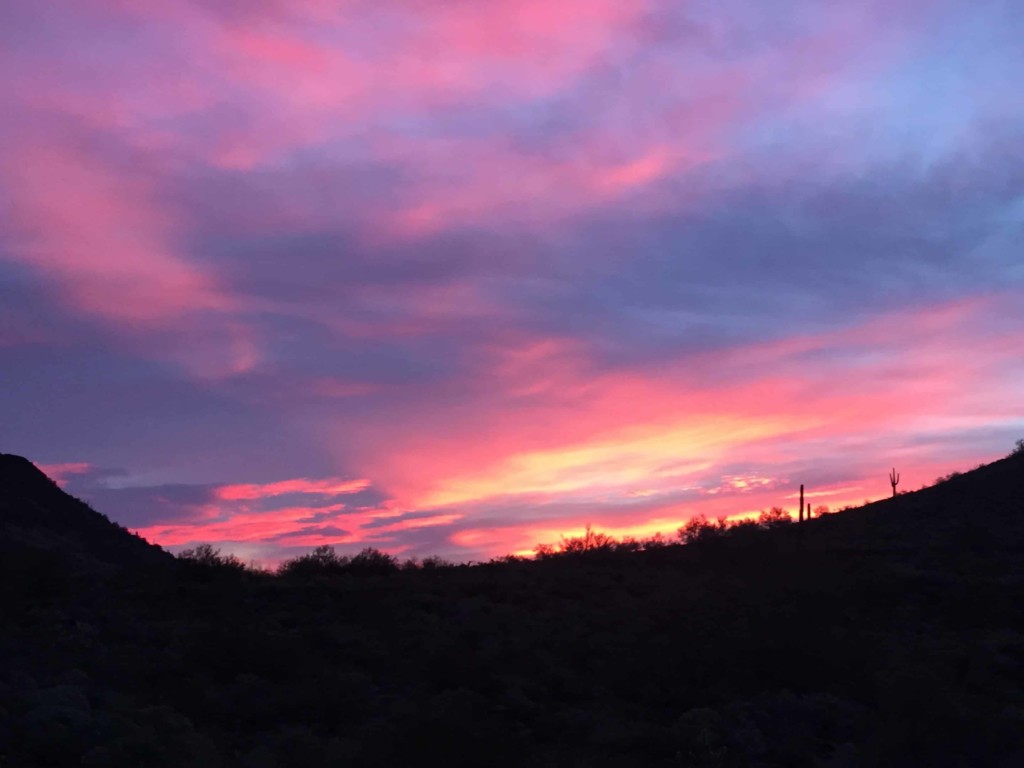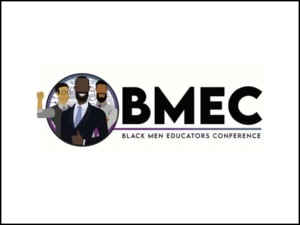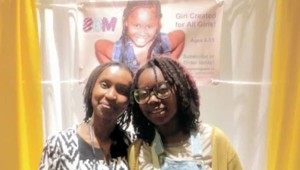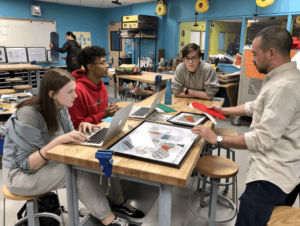Of Note: Black Swans & Big Sky

It’s been an interesting week. Promising capabilities were introduced while big storms hit the east coast and the stock market. Following are four thoughts on learning in an uncertain world.
1. Black Swans. Last fall a few people suggested that conditions pointed to a stock market correction (a drop of more than 10%)–they were right, the new year is off to a terrible start. The big market decline is (probably ) caused the long predicted rise in interest rates, a slow down in the Chinese economy (which a few people predicted) and plummeting oil prices–which nobody predicted. The price of oil dropped from $94 per barrel on 6/30/14 to $29 per barrel this week.
“Black Swan” event: oil $94/b 6/30/14, $29/b 1/19/16 great for people, bad for environment https://t.co/fIX9JkkejA pic.twitter.com/9tw8KHOuiN
— Tom Vander Ark (@tvanderark) January 19, 2016
We live in a period of paradox– incredible opportunity and enormous problems. We’ve created large complex human systems (like oil production and distribution) that produce these unexpected Black Swan events–important developments way outside anyone’s forecast. What makes this more worrisome is the decline in our collective problem solving ability as evidenced by the early US presidential campaigns.
2. Rethinking HigherEd. On a more positive note, there is growing capacity to create blended, personalized, and competency-based higher education options. Pearson released a competency playbook (see below).
Pearson Unveils #HigherEd #CompetencyEd Playbook https://t.co/FX4iPcEFs3 #CBE pic.twitter.com/pnKYXba7WF
— Tom Vander Ark (@tvanderark) January 21, 2016
2U helps universities create engaging graduate programs blending immersive content and live classes. Noodle Partners helps universities craft online strategies to boost enrollment, diversity, engagement, and sustainability. Civitas Learning helps universities use data and this week acquired a scheduling app.
3. Rethinking K-12. The reauthorization of federal education legislation marks the end of two decades of standards-based reform. It solidified high expectations for all students and introduced consistent measurement but it came with some unintended consequence (in part because congress proved unable to engage in any productive iteration, see #1). Trenton Goble, co-founder of MasteryConnect, released a book this week, Reclaiming the Classroom. The former Utah teacher and school administrator argues that, “Teachers have always had the ability to monitor the ‘series of complex human events’ that contribute to meaningful student learning outcomes. But they cannot do this within the narrow confines of academic standards that are measured by external tests.” See 18 quotes from this challenging thoughtful book.
#ReclaimingtheClassroom: new book from @TrentonGoble, @MasteryConnect co-founder https://t.co/deAExtzpHu pic.twitter.com/rmEJdBBogk
— Tom Vander Ark (@tvanderark) January 22, 2016
4. Behold. Over the last 12 months podcasts have important part of in my personal learning. I listen to a couple education podcasts, like Fordham’s Gadfly and Linda Buchner’s Driven 2 Educate (check out our conversation below).
Congratulations, Linda! Great new #edu podcast –> @driven2educate https://t.co/PttOjIBFuD HT @tvanderark @marcwinn pic.twitter.com/FcfkUycvUi
— michael j. crawford (@mjcraw) January 21, 2016
I enjoy Gayle Allen’s Curious Minds podcast including her discussion with Jamie Holmes on uncertainty (again, see #1). Gayle is CLO at education data leader BrightBytes.
Jamie Holmes on why a high tolerance for uncertainty is valuable right now https://t.co/wAoS7q8oNB via @GAllenTC pic.twitter.com/XmQmN5smZm
— Tom Vander Ark (@tvanderark) January 2, 2016
Machine learning has been my personal learning project for the last six months so I listen to six data science shows.
To better understand this human machinery, I listen to Krista Tippett’s On Being podcast. This morning I queued up her chat with Benedictine David Steindl-Rast about gratitude before heading out for a run. David encourages us to lift our chin and “behold” all the beauty around us as part of our daily routine. His reminder to look up on occasion came through my earbuds as I rounded the corner of a mountain trail and saw the light of a new day.
For more on news, check out:
Stay in-the-know with all things EdTech and innovations in learning by signing up to receive the weekly Smart Update. This post includes mentions of a Getting Smart partner. For a full list of partners, affiliate organizations and all other disclosures please see our Partner page.






0 Comments
Leave a Comment
Your email address will not be published. All fields are required.